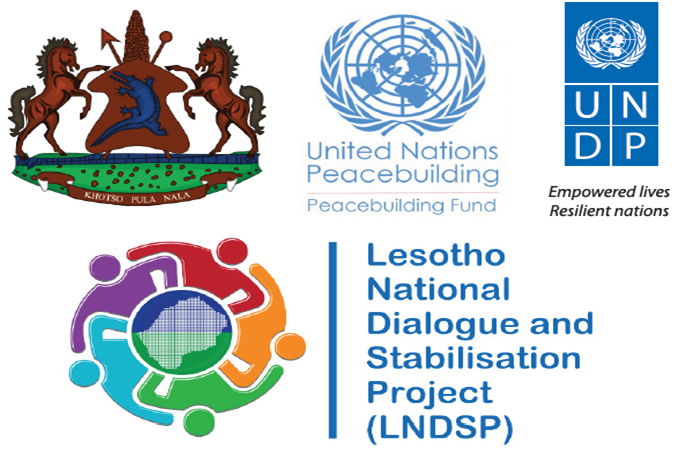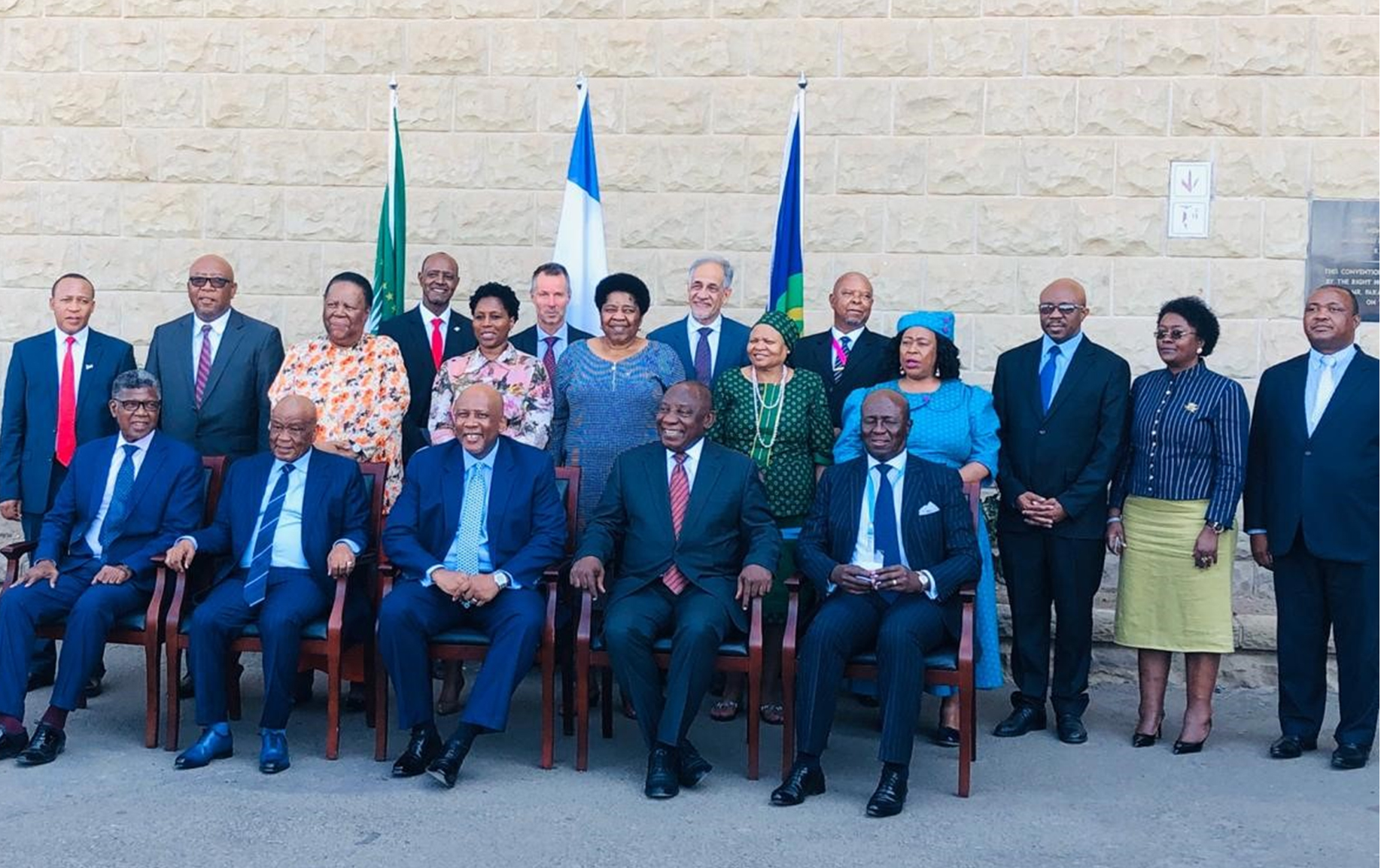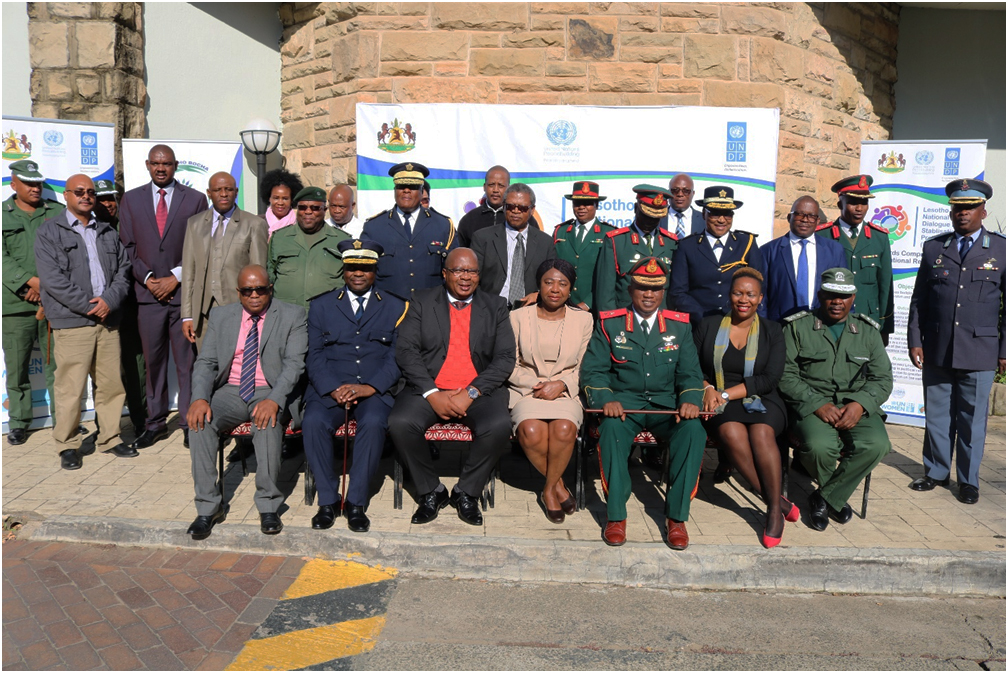 Lesotho National Dialogue and Stabilization Project
Facilitating consensus building and catalyzing an environment conducive to comprehensive national reforms in Lesotho
Lesotho National Dialogue and Stabilization Project
Facilitating consensus building and catalyzing an environment conducive to comprehensive national reforms in Lesotho

Challenges
The Southern African Development Community (SADC) has long been recommending reforms in Lesotho as a basis for its enduring stability and peace. However, several SADC summit decisions have remained unimplemented, mainly due to security fears, government instability and lack of political consensus. Since 1998, SADC has been providing a window of stability in the country through peacekeeping military interventions and preventive oversight initiatives (notably election observation missions); yet the high associated costs are not sustainable.
It is now widely perceived that the successful implementation of the reforms requires the inclusion of all stakeholders, in particular women, who had been largely missing in the previous political dialogues and stabilization efforts. Thus, SADC, the government and the opposition have agreed that the reforms must be preceded by a multi-stakeholder national dialogue to build consensus on processes and content and to seek ways of promoting long-term reconciliation and unity.
Towards a Solution
The Lesotho National Dialogue and Stabilization Project (LNDSP) gathered the Government of Lesotho, the United Nations, the SADC Secretariat and Member States (with South Africa as a sponsor and facilitator) and other partners to collaborate towards an inclusive national dialogue to create an enabling environment for comprehensive national reform. The project is implemented by the Government of Lesotho, the National Dialogue Planning Committee, SADC, the Lesotho Council of Non-Governmental Organizations, the Christian Council of Lesotho and United Nations agencies (UNDP, UN Women, UNHCR and the Office of the High Commissioner for Human Rights), with support from the United Nations Peacebuilding Fund and UNDP. The project supported national consensus and trust building through a multilevel dialogue on the proposed reforms, involving urgent stabilization measures in the security sector, women’s empowerment and gender mainstreaming and the development and implementation of a communications strategy.
To contextualize the reforms, especially security sector related ones, the project used volunteer experts from SADC Member States who were familiar with the Lesotho context. This reduced the project’s implementation cost. Through the Organ on Politics, Defence and Security Cooperation and the Summit of Heads of States and Governments, SADC provided a political deadlock-breaking mechanism in which shuttle diplomacy was applied to defuse tensions and bring conflicting parties to the negotiation table.
In addition to engaging experts from the SADC region and leveraging the political capital of the SADC Organ, the project utilized South-South cooperation by relying on the mobilization capability of civil society and faith-based organizations in SADC member countries. National partners – the Christian Council of Lesotho and Lesotho Council for NGOs – and their regional counterparts adopted traditional dialogue mechanisms to get views and input of citizens on the reforms. A fulltime SADC Facilitation Team led by the President of South Africa was established to engage with SADC, thus serving as a political and social deadlock breaking mechanism to defuse tensions in the dialogue process. The SADC also provided timelines and oversight which sustained regional engagement. Importantly, South Africa's experience with transitioning from apartheid rule and the handling of internal conflicts through a mediating role was critical to the negotiations and consensus building. The national dialogue process identified the institutions that should be reformed to enhance good governance, social accountability and cohesion. Other results included:
- National agreement on reform content and options for implementation, safeguarded by a legal and institutional framework. This has become the basis for national reconciliation, sustainable peace and a reform path for democratic governance in Lesotho. The outcome document was endorsed by governing coalition partners, opposition parties in and outside parliament, religious groups, civil society organizations, professional associations, academia, the media, women’s organizations, youth groups, people living with disabilities, farmers and herders unions, trade unions and Royalty.
- A strong foundation for a comprehensive vision, strategy and policy for the national security sector, with reduced tensions and enhanced participation of the sector in the reform process through policy assessment, engagement and concurrence with the sector’s high command, counselling and psychosocial support for 1,200 security members and security training for 500 trainers.
- The communication strategy for national dialogue and reforms led to increased access to coherent information on the national dialogue and reform process and mobilization of the public to effectively participate in district consultations.
- Implementation arrangements for resolutions and decisions of national reform were established through the enactment of the National Reforms Authority Act, 2019, which constitutes a safeguard to insulate the reform process for interference. These arrangements resulted in the mobilization of over $4 million for reform implementation, including support from the European Union, UNDP and the United Nations Peacebuilding Fund.
Contact Information
Countries involved
Supported by
Implementing Entities
Project Status
Project Period
Primary SDG
Secondary SDGs
Similar Solutions
| NAME OF SOLUTION | Countries | SDG | Project Status | |
|---|---|---|---|---|
Accelerating the Implementation of African Union Treaties in São Tomé and Príncipe South-South learning from the Beninese judicial system’s experience in the application of human rights treaties to its national law |
Angola, Botswana, Comoros, Democratic Republic of the Congo, Eswatini, Lesotho, Madagascar, Malawi, Mauritius, Mozambique, Namibia, Seychelles, South Africa, United Republic of Tanzania, Zambia, Zimbabwe | 05 - Gender Equality | Completed | View Details |
Accelerating the Transformational Shift to a Low-Carbon Economy in Mauritius Towards supplying 35 percent of the country’s energy needs with renewables by 2025 |
Angola, Botswana, Comoros, Democratic Republic of the Congo, Eswatini, Lesotho, Madagascar, Malawi, Mauritius, Mozambique, Namibia, Seychelles, South Africa, United Republic of Tanzania, Zambia, Zimbabwe | 05 - Gender Equality 09 - Industry, Innovation and Infrastructure 13 - Climate Action | Ongoing | View Details |
Accelerator Labs Network Following collective intelligence methods to address emerging sustainability challenges and the growing demand for local solutions |
Angola, Botswana, Comoros, Democratic Republic of the Congo, Eswatini, Lesotho, Madagascar, Malawi, Mauritius, Mozambique, Namibia, Seychelles, South Africa, United Republic of Tanzania, Zambia, Zimbabwe | 08 - Decent Work and Economic Growth 13 - Climate Action | Ongoing | View Details |
Accessibility of Financial Services and the Private Sector in Africa Maximizing the impact of financial cooperation on economic development and industrialization in Africa |
Angola, Botswana, Comoros, Democratic Republic of the Congo, Eswatini, Lesotho, Madagascar, Malawi, Mauritius, Mozambique, Namibia, Seychelles, South Africa, United Republic of Tanzania, Zambia, Zimbabwe | 08 - Decent Work and Economic Growth | Completed | View Details |
Access to Justice through e-Services and Dematerialized Case Management Scaling up connectivity and unlocking the digital potential of judicial institutions to enhance access to justice for all |
Angola, Botswana, Comoros, Democratic Republic of the Congo, Eswatini, Lesotho, Madagascar, Malawi, Mauritius, Mozambique, Namibia, Seychelles, South Africa, United Republic of Tanzania, Zambia, Zimbabwe | 05 - Gender Equality | Completed | View Details |


